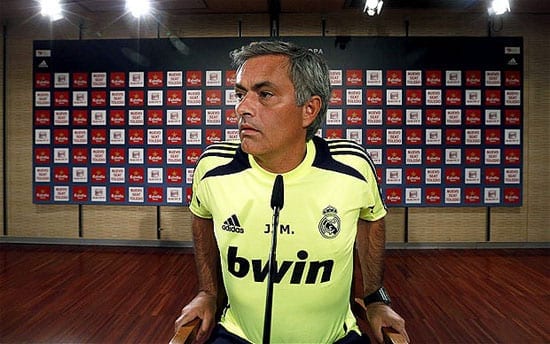Pontus Maltbourg analyses this year’s European football transfer window
With less than one month remaining of the major European transfer window it is time to analyse the movers and shakers in European football.
Although the English Premier League is considered the top national competition in the world (it certainly turnovers the most money with a staggering new £5.5 billion three year television deal signed with SKY) it is the still the Spanish Primera División that holds top spot in the European coefficient rankings, tightly followed by England and Germany.

Most of Spain’s success hails from their world leading national talent development being defending World Cup champions and back-to-back European champions helps to solidify this claim. However it is still a mystery to most that Spain has managed to remain at top so long given the country’s perilous domestic financial situation.
The reason for Spanish football being ‘recession proof’ has to do with the neglectful devil-may-care ‘mañana’ attitude Spanish clubs have taken to red numbers and accumulating debt. This occurs due to the fact that Spanish clubs are considered the most important of cultural institutions, as well as being pivots of regional pride and politically untouchable in Iberian society.
Local governments and banks have been afraid of taking the hardline with Spanish clubs because of the ‘badwill’ ‘going against’ the local club will generate. This has resulted in clubs becoming used to having creditors rewrite their debt and extending loan payments indefinitely and in turn basically being labeled as “too big to fail”. However during Spain’s latest recession (which in itself was caused by debt accumulation), attitudes have begun to shift. As the clubs themselves have understood that the pillars of society (such as local governments and banks) are so crippled in debt they are slowly dying, the clubs have finally decided to own up to the addiction of debt accumulation and welcome policy and laws aimed at restructuring and repaying the debt of Spanish football clubs which exceeds that of €2 billion.
The debt has also affected the general turnover of almost all clubs in the league due to reduced match day income, merchandising & stagnating television income all clubs that is apart from the two giant “world brands” that are Real Madrid and FC Barcelona. These clubs really are too big to fail as they draw most of their turnover globally and not locally as is the case with the rest of the league.
This newly gained financial austerity has led to some clubs going into administration and others being on the verge of bankruptcy. With many not being able to pay inflated wages to players the Spanish crisis has finally begun to hit home at the privileged class of professional footballers. Thus the exodus many expected to see in the summer of 2012 is finally beginning to kick in. So far over thirty players have left the Spanish top flight where roughly a third having ended up in England. This on its own is not a figure that calls for alarm but if we further choose to examine what players that have left we find that nearly all of Spain’s top clubs outside of the two behemoths (Real M and Barca) have lost their top two marquee players to clubs outside Spain or to the two behemoths. We are talking about big name players such as Isco, Negredo, Soldado, Jesus Navas, Falcao to mention but a few.
These clubs (third to eighth in Spain in terms of size) have been quick to replace these players with the even more indebted smaller clubs and use the large margin of transfer market profit to stabilise debt. Nonetheless the already ocean wide gap in quality between Real Madrid and FC Barcelona and the rest looks to be even greater next year. This will ultimately make the Spanish League less attractive commercially and this in a league where the third and fourth in turnover Valencia and Atletico Madrid already today receive income in television rights that is in parity with the likes of Crystal Palace and Norwich City.
Nonetheless it will be interesting to see how this new batch of Primera División top footballers will adjust to life in England and football in the premier league, and also it will be interesting to see how quickly the likes of Valencia, Real Sociedad, Atletico Madrid and Sevilla will take before they polish up their new “rough diamonds” into world class players. In England the obvious winners thus far seem to be managers with good understanding of Spanish football and with an intricate network in Spain such as Swansea manager Michael Laudrup and newly appointed Manchester City manager Manuel Pellegrini.
This article has been written at the time that Real Madrid looks set to break the bank for a world transfer record swoop of PFA Premier League player of the year Tottenham’s Gareth Bale. This deal, however, is just a glitch in the trend of Primera División players moving to England.
Stockholm and Warsaw based Pontus Maltborg is a football expert with a passion for scouting and talent development. Follow him on Twitter here.
Subscribe to our free once daily email newsletter here:







